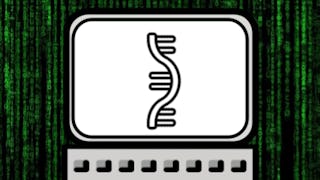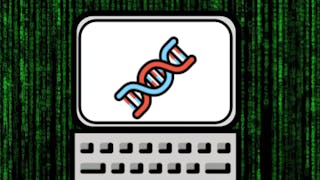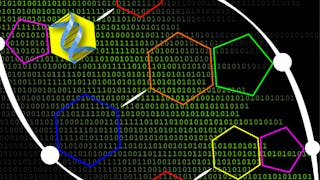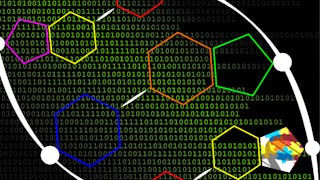This course is a follow up course to "Researcher's Guide to Fundamentals of Omic Data" which dives into further detail about DNA informatics methods!


Researcher's guide to DNA sequencing data
This course is part of Researcher's Guide to Omic Data Specialization

Instructor: Candace Savonen, MS
Included with
Recommended experience
What you'll learn
You will be able to understand the goals and general workflows of DNA based methods and know tools and resources you should consider.
Skills you'll gain
Details to know

Add to your LinkedIn profile
13 assignments
See how employees at top companies are mastering in-demand skills

Build your subject-matter expertise
- Learn new concepts from industry experts
- Gain a foundational understanding of a subject or tool
- Develop job-relevant skills with hands-on projects
- Earn a shareable career certificate

There are 7 modules in this course
In this module we discuss what this course covers and encourage you to make your own goals for what you'd like to learn. Then we start with some generalities about DNA focused methods.
What's included
3 videos3 readings2 assignments1 discussion prompt
In this module we cover the details of whole genome sequencing and whole exome sequencing. We compare and contrast the methods and discuss what kinds of questions these data types might answer.
What's included
2 readings2 assignments1 discussion prompt
In this section we dive into DNA methylation sequencing methods, also known more specifically as bisulfite sequencing.
What's included
2 readings2 assignments1 discussion prompt
In this section we cover the basics of chromatin evaluation methods. We contrast and compare chromatin sequencing methods.
What's included
1 video2 readings2 assignments1 discussion prompt
In this module, we discuss details of the different ways chromatin can be assessed. We go through the basics of ATAC-seq, and scRNA-seq.
What's included
2 videos3 readings2 assignments
In this section we cover the basics of ChIP-seq and CUT & Tag and CUT & RUN.
What's included
1 video4 readings2 assignments
In this section, In this module we discuss when microarrays should be used for assaying DNA instead of sequencing methods. and then we will wrap up this course with a final quiz to assess your absorption of the material. We also point you to our Tool Glossary that has a list of tools you may want to consider for your next steps of your DNA omics study.
What's included
3 readings1 assignment2 discussion prompts
Earn a career certificate
Add this credential to your LinkedIn profile, resume, or CV. Share it on social media and in your performance review.
Instructor

Offered by
Explore more from Data Analysis
 Status: Free Trial
Status: Free TrialFred Hutchinson Cancer Center
 Status: Free Trial
Status: Free TrialFred Hutchinson Cancer Center
 Status: Free Trial
Status: Free TrialJohns Hopkins University
 Status: Free Trial
Status: Free TrialJohns Hopkins University
Why people choose Coursera for their career





Open new doors with Coursera Plus
Unlimited access to 10,000+ world-class courses, hands-on projects, and job-ready certificate programs - all included in your subscription
Advance your career with an online degree
Earn a degree from world-class universities - 100% online
Join over 3,400 global companies that choose Coursera for Business
Upskill your employees to excel in the digital economy
Frequently asked questions
To access the course materials, assignments and to earn a Certificate, you will need to purchase the Certificate experience when you enroll in a course. You can try a Free Trial instead, or apply for Financial Aid. The course may offer 'Full Course, No Certificate' instead. This option lets you see all course materials, submit required assessments, and get a final grade. This also means that you will not be able to purchase a Certificate experience.
When you enroll in the course, you get access to all of the courses in the Specialization, and you earn a certificate when you complete the work. Your electronic Certificate will be added to your Accomplishments page - from there, you can print your Certificate or add it to your LinkedIn profile.
Yes. In select learning programs, you can apply for financial aid or a scholarship if you can’t afford the enrollment fee. If fin aid or scholarship is available for your learning program selection, you’ll find a link to apply on the description page.
More questions
Financial aid available,

